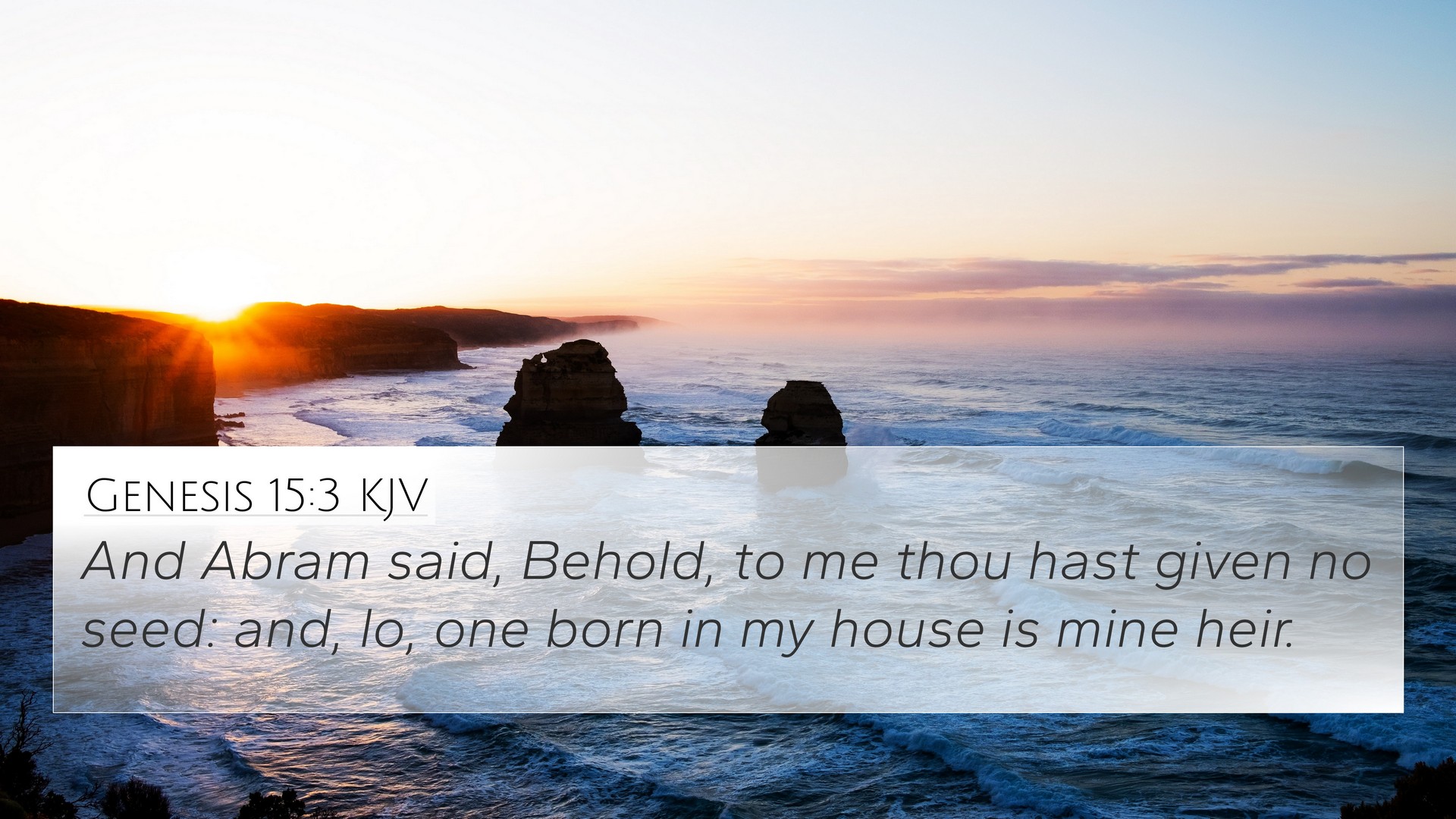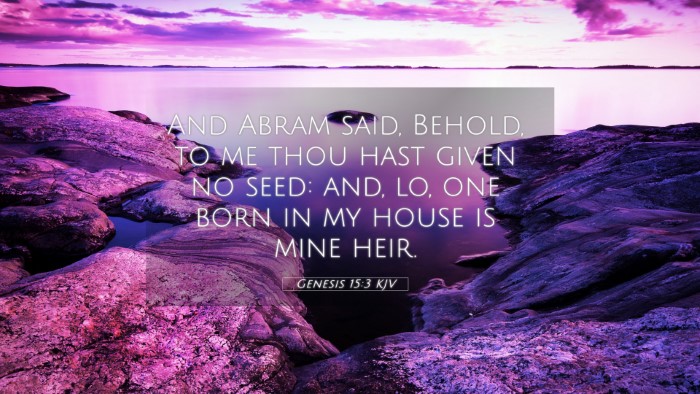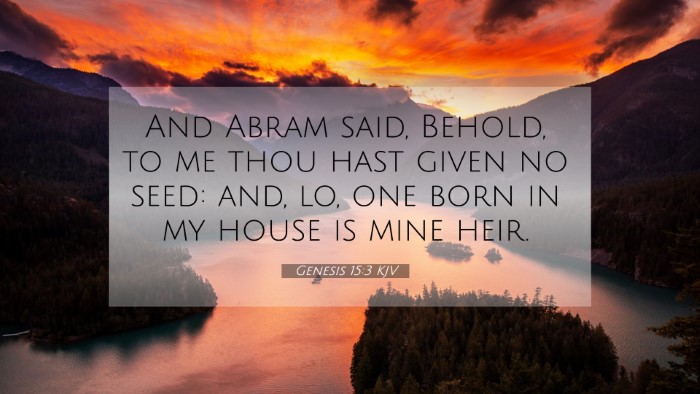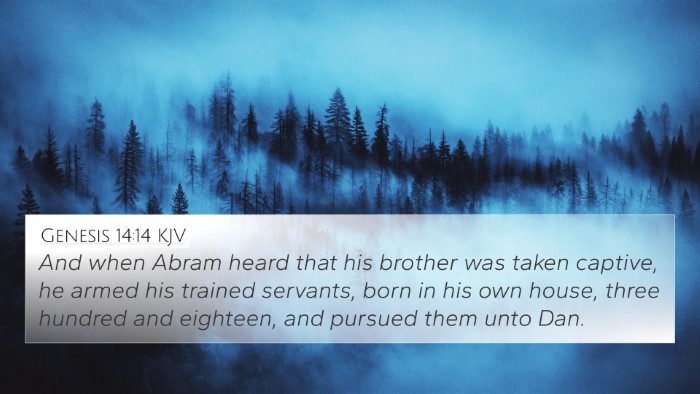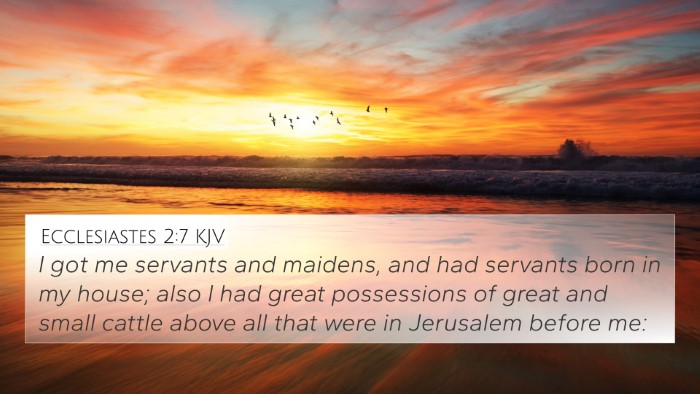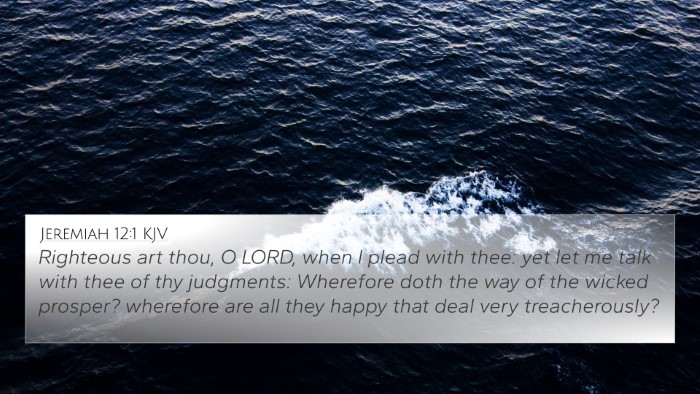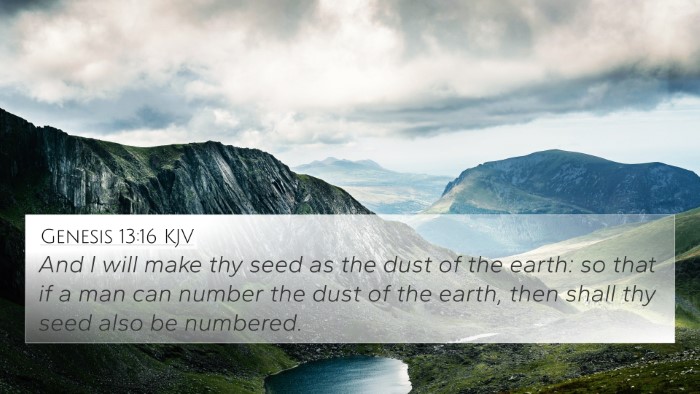Understanding Genesis 15:3
Genesis 15:3 states, "And Abram said, Behold, to me thou hast given no seed: and, lo, one born in my house is mine heir." This verse captures a pivotal moment in Abram's journey of faith, revealing his concerns about the promises God had made to him.
Summary of Insights
In this passage, we find Abram expressing his doubts regarding God’s promise of progeny. His declaration reflects human vulnerability in faith, signaling a yearning for assurance.
Commentary Insights
Matthew Henry Commentary
Matthew Henry notes that Abram's complaint shows his misunderstanding of God's timing and methods. He emphasizes that the promises of God often require patience and trust before they manifest. Henry remarks on Abram's concern about having no heir, suggesting that God’s promise seemed delayed, causing Abram to seek assurance.
Albert Barnes Commentary
Albert Barnes highlights the context of Abram's emotions, emphasizing the cultural significance of heirs during this era. He interprets the verse as Abram articulating his desire for a tangible fulfillment of God’s promises, particularly the birth of a son. Barnes underscores the importance of God’s covenant, suggesting that Abram’s cry is a heartfelt plea for clarity on God’s plan.
Adam Clarke Commentary
Adam Clarke delves into the nature of Abram's predicament, explaining that the lack of a biological heir led Abram to consider adopting a servant as his heir. Clarke stresses the depth of Abram's faith, noting that despite his doubts, he remained in discussion with God, revealing a relationship defined by trust and prayer.
Thematic Connections
This verse highlights several profound themes relevant to biblical study:
- The Nature of God's Promises: God's assurance even in the face of doubt.
- Faith and Doubt: The human condition of questioning God's promises.
- Covenant Relationships: The importance of lineage and inheritance in biblical narratives.
Cross-References to Genesis 15:3
Here are key Bible verses that illustrate connections and deepen understanding of Genesis 15:3:
- Genesis 12:2-3: God's initial calling and promise to Abram.
- Genesis 17:15-16: God's explicit promises about Abram's future descendants.
- Genesis 21:1-2: The eventual birth of Isaac, affirming God's promise.
- Hebrews 11:11-12: New Testament reflection on Abram's faith in God's promises.
- Romans 4:18-21: Paul's commentary on Abram's belief against hope.
- Galatians 3:29: The inheritance of believers through Abraham’s faith.
- Luke 1:37: The affirmation that nothing is impossible with God, relating to God's power in fulfilling promises.
Connections between Bible Verses
The interrelationships between Genesis 15:3 and other scriptures provide a rich field for theological exploration:
- Thematic Bible Verse Connections: Understanding God’s faithfulness in the face of human frailty.
- Inter-Biblical Dialogue: The Old Testament foundation of faith and the New Testament fulfillment.
- Comparative Bible Verse Analysis: Observations on faith in times of uncertainty.
Insights from Cross-Referencing Biblical Texts
Using tools for Bible cross-referencing can deepen one’s study. Scholars utilize systems such as:
- Bible Concordance: Finding specific words and their occurrences across scripture.
- Bible Cross-Reference Guide: A structured approach to related verses.
- Bible Reference Resources: Materials that help navigate connections in scripture.
Conclusion
Genesis 15:3 invites readers into Abram’s world of faith where questions arise amidst divine promises. By employing cross-referencing techniques, one can weave together the fabric of biblical truths, reinforcing the connection of God’s assurances throughout the entirety of scripture.
